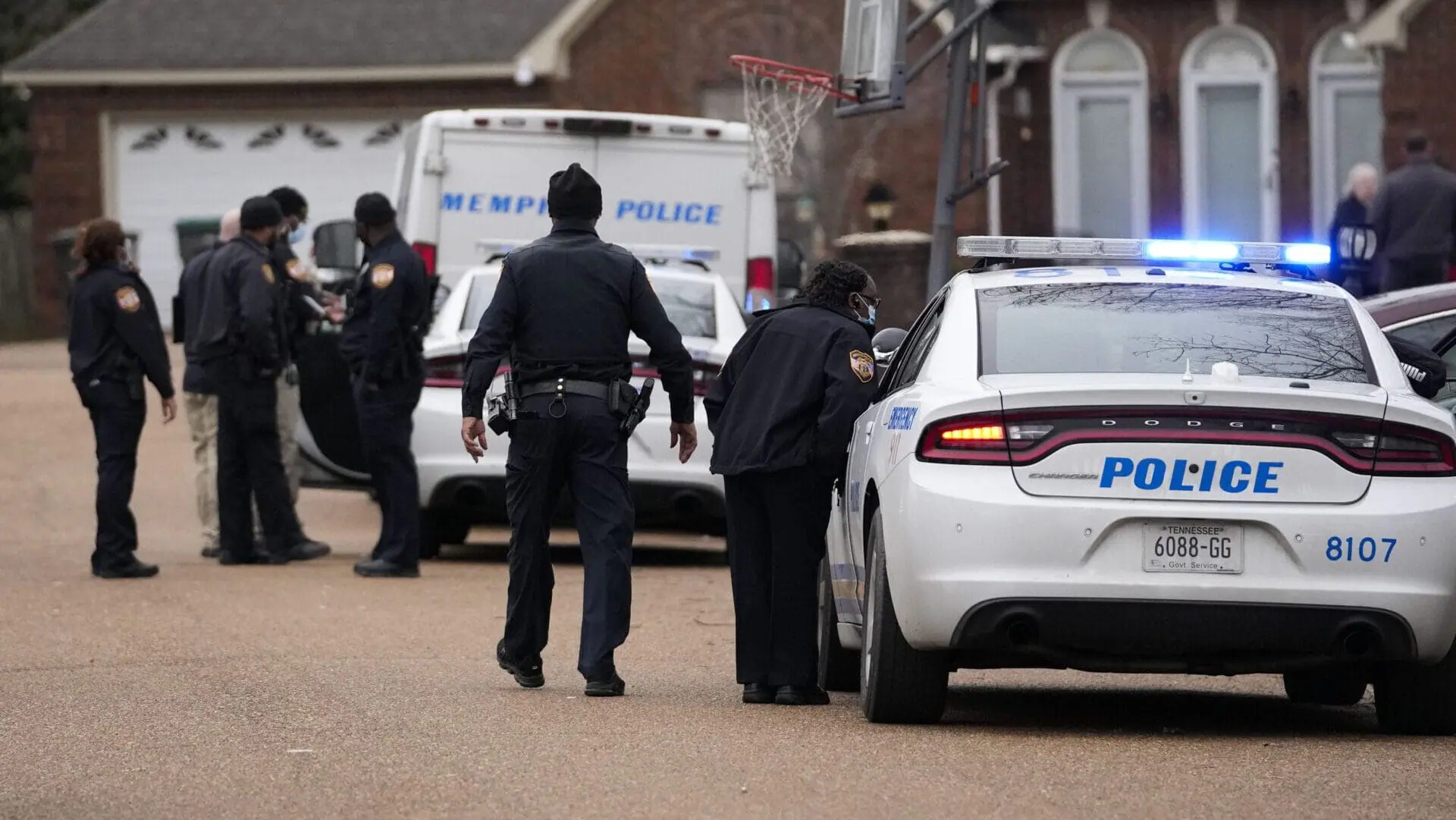Justice Department and Memphis to address the results of a scathing police investigation
MEMPHIS, Tenn. (AP) — The fatal beating of Tyre Nichols by officers after he ran away from a January 2023 traffic stop exposed serious problems in the Memphis Police Department, from its use of excessive force to its mistreatment of Black people in the majority-Black city, a federal investigation found.
A report released Wednesday revealed the findings of a 17-month Department of Justice investigation into Memphis police that began after officers kicked, punched and hit Nichols with a baton. Members of the Justice Department’s Civil Rights Division plan to discuss the report during a Thursday news conference, after which city officials are expected to offer a rebuttal at their own press availability.
Nichols was Black, as are the former officers involved in his beating. His death led to national protests, raised the volume on calls for police reforms in the U.S., and directed intense scrutiny towards the Memphis Police Department, more than half of whose members are Black, including Chief Cerelyn “CJ” Davis.
The federal probe looked at the department’s “pattern or practice” of how it uses force and conducts stops, searches and arrests, and whether it engages in discriminatory policing. The city said in a letter released before the report Wednesday that it would not agree to negotiate federal oversight of its police department until it could review and challenge the investigation’s findings.
The investigation found that officers would punch, kick and use other force against people who were already handcuffed or restrained, which it described as unconstitutional but which were nearly always approved after the fact by supervisors. Officers resort to force likely to cause pain or injury “almost immediately in response to low-level, nonviolent offenses, even when people are not aggressive,” investigators determined.
“Memphis police officers regularly violate the rights of the people they are sworn to serve,” according to the report, which noted that Black people were disproportionately affected by such violations.
Memphis police cite or arrest Black people for loitering or curfew violations at 13 times the rate it does for white people, and cite or arrest Black people for disorderly conduct at 3.6 times the rate of white people, the report said.
Police video showed officers pepper spraying Nichols and hitting him with a Taser before he ran from a traffic stop. Five officers chased down Nichols just steps from his home as he called out for his mother. The video showed the officers milling about, talking and laughing as Nichols struggled with his injuries.
Nichols died three days after the beating. The five officers were fired, charged in state court with murder, and indicted by a federal grand jury on civil rights and witness tampering charges.
The report specifically mentions the Nichols case, and it addresses the police department’s practice of flooding neighborhoods with traffic stops. But it also describes other cases, including one in which officers pepper-sprayed, kicked and fired a Taser at an unarmed man with a mental illness who tried to take a $2 soda from a gas station.
The investigation cited police training that “primed officers to believe that force was the most likely way to end an encounter,” rather than talking to a suspect to de-escalate a situation. In one training example, officers were told that, “If a fight is unavoidable, hurt them first and hurt them bad.”
In a letter to the Justice Department’s Civil Rights Division, Memphis City Attorney Tannera George Gibson said the city had received a DOJ request to enter into a consent decree with federal oversight of the police department — but would not do so until it could review and challenge results of the investigation.
A consent decree is an agreement requiring reforms that are overseen by an independent monitor and are approved by a federal judge. The federal oversight can continue for years, and violations could result in fines paid by the city.
The officers in the Nichols case were part of a crime suppression team called the Scorpion Unit, which was disbanded after Nichols’ death. The team targeted drugs, illegal guns and violent offenders, with the goal of amassing arrest numbers, while sometimes using force against unarmed people.
Memphis police never adopted policies and procedures to direct the unit, despite alarms that it was minimally supervised, the report said. Prosecutors told investigators that there were some “outrageous” inconsistences between body camera footage and arrest reports, and that if the cases went to trial, they would be “laughed out of court.” The unit’s misconduct led to dozens of criminal cases being dismissed.
Justice Department investigators have targeted other cities with similar probes in recent years, including Minneapolis after the killing of George Floyd, and Louisville, Kentucky, following an investigation prompted by the fatal police shooting of Breonna Taylor.
___
Mattise reported from Nashville and Durkin Richer reported from Washington. Associated Press reporter Kristin M. Hall contributed from Chicago.
